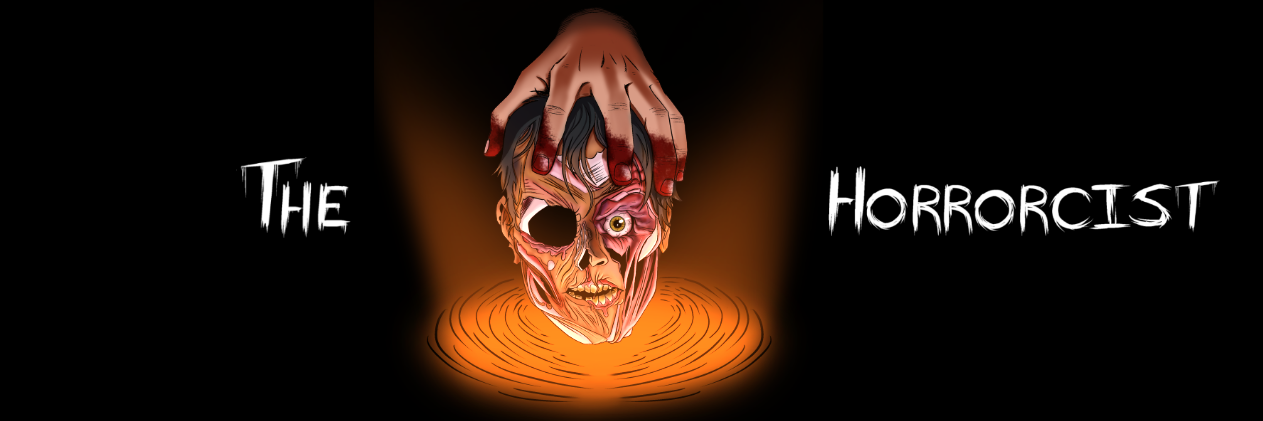The Block Island Sound is one of Fantasia Film Festival 2020’s more thoughtful horror films, more of a psychological horror rather than an out-and-out horror film, but one that still packs in a fair amount of chills and shocks in its rumination of broken families and seaside possessions.
We’ve seen a lot of films recently like Sea Fever, The Beach House and Color Out Of Space that have coincidentally managed to tap into the current real-world paranoia and concern over the pandemic and Coronavirus by making these things more overtly horrific. The McManus Brothers’ latest is definitely another great entry into this list.
We are introduced to the Lynch family, local fisherman Tom (Neville Archambault), who hasn’t been quite right for a while, Harry (Chris Sheffield), who is Tom’s son and the black sheep of the family and Audry (Michaela McManus), Tom’s prodigal daughter who returns to Block Island to investigate some mysterious events surrounding the island’s local wildlife.

What follows is a story packed fill of apocalyptic dread with tinges of environmental criticism underlying it all. Hordes of dead fish wash up on beaches, countless numbers of seaside birds fall out of the sky and there’s a strange noise that carries with it extremely sinister connotations.
You’d expect a film called The Block Island Sound to have a decent musical score and soundscape, but there’s nothing that can quite prepare you for the guttural, low-pitched, pained roar ing of the unseen sinister force that is behind the events of the film. This matched with the constant scratches and glitches of technology and the constant rushing and whirring of the sea and the wind help to make everything incredibly atmospheric, tense and full of underlying dread.
This certainly helps to make the film’s central mystery that sees Tom, who is rapidly declining in health, and Harry keen to investigate what happens to his father, become haunted by the aforementioned ‘sound’ that disrupts technology around them and presents itself in horrific visions that demand things of them.

Even though it’s presented as a haunting there’s some ambiguity about what’s actually happening, although there are clues that allow the audience to piece things together. Harry goes scuba-diving in the spot his father disappeared and is seemingly attacked by some sort of underwater spore. It’s clear then, that he has been infected by a parasitic material that is able to control him.
Anyone who has seen American Psycho will remember the horror of the ATM machine telling Patrick Bateman to feed it a cat. The Block Island Sound pays homage to this moment in a way with the chilling scenes of Harry being haunted by his father who incessantly repeats ‘dog’ or ‘girl’ and then the horrific implication of these words is revealed.
Naturally this framing allows the films to explore themes like familial inheritance and fears over mental and physical health issues being passed down through generations in a similar way to how we saw another recent horror film Relic do so. Sheffield in particularly is superb at depicting the strain of the mental and physical struggle caused by his internal conflict to do the right thing, but also to obey the voices in his head.

I also really liked the way Block Island Sound uses technology as a means of ‘brainwashing’ and ‘controlling’ the characters, turning them from protagonists to monstrous villains as the film goes on. This is an obvious criticism of technology and a mistrusting of the way technology affects people but it also ties quite neatly into the film’s consciously environmental concerns.
The fact that it’s Harry, a black sheep of the family with drug, alcohol and criminal issues and a bad reputation, that transitions from misunderstood brother with a bad reputation and a heart of gold to mindless monster doing the bidding of some sinister higher power is particularly poignant in adding to the theme of familial mistrust.
This all adds up to a very effective slow-burn chiller that uses its sea-side setting perfectly, particularly with its extraordinary climactic scenes in which the contents of the fishing boats are propelled into the air and lost, explaining the various disappearances that have taken place, and ultimately spelling out the mystery at the core of the story. Sadly, the film does pull its punches in the final minute or so, losing its teeth to end things slightly happier than we might’ve expected.
However, the call-back repetition of an explanation that Audry gives to her young daughter earlier on in the film to explain why she removes fish from the water to study them, is a lovely and effective metaphor to explain and frame the whole film in a context that is both equally ponderous, chilling and introspective. Just like the droning, otherworldly sound that permeates the film, The Block Island Sound will stay with you long after you’ve watched it.
For more reviews and interviews, check out our Fantasia Film Festival 2020 coverage here





